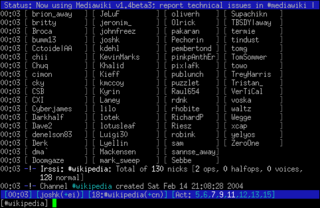
Irssi is an IRC client program for Linux, FreeBSD, macOS and Microsoft Windows. It was originally written by Timo Sirainen, and released under the terms of the GNU General Public License in January 1999.
Gentoo Linux is a Linux distribution built using the Portage package management system. Unlike a binary software distribution, the source code is compiled locally according to the user's preferences and is often optimized for the specific type of computer. Precompiled binaries are available for some larger packages or those with no available source code.

GoboLinux is an open source operating system whose most prominent feature is a reorganization of the traditional Linux file system. Rather than following the Filesystem Hierarchy Standard like most Unix-like systems, each program in a GoboLinux system has its own subdirectory tree, where all of its files may be found. Thus, a program "Foo" has all of its specific files and libraries in /Programs/Foo, under the corresponding version of this program at hand. For example, the commonly known GCC compiler suite version 8.1.0, would reside under the directory /Programs/GCC/8.1.0.

The gentoo penguin is a penguin species in the genus Pygoscelis, most closely related to the Adélie penguin and the chinstrap penguin. The earliest scientific description was made in 1781 by Johann Reinhold Forster with a type locality in the Falkland Islands. They call in a variety of ways, but the most frequently heard is a loud trumpeting which the bird emits with its head thrown back.

Portage is a package management system originally created for and used by Gentoo Linux and also by Chrome OS, Sabayon, and Funtoo Linux among others. Portage is based on the concept of ports collections. Gentoo is sometimes referred to as a meta-distribution due to the extreme flexibility of Portage, which makes it operating-system-independent. The Gentoo/Alt project is concerned with using Portage to manage other operating systems, such as BSDs, macOS and Solaris. The most notable of these implementations is the Gentoo/FreeBSD project.

gentoo is a free file manager for Linux and other Unix-like computer systems created by Emil Brink. It is licensed under the GNU General Public License.
udev is a device manager for the Linux kernel. As the successor of devfsd and hotplug, udev primarily manages device nodes in the /dev directory. At the same time, udev also handles all user space events raised when hardware devices are added into the system or removed from it, including firmware loading as required by certain devices.
Technical variations of Linux distributions include support for different hardware devices and systems or software package configurations. Organizational differences may be motivated by historical reasons. Other criteria include security, including how quickly security upgrades are available; ease of package management; and number of packages available.
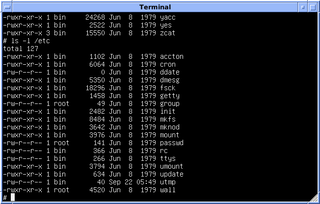
In Unix-based computer operating systems, init is the first process started during booting of the computer system. Init is a daemon process that continues running until the system is shut down. It is the direct or indirect ancestor of all other processes and automatically adopts all orphaned processes. Init is started by the kernel during the booting process; a kernel panic will occur if the kernel is unable to start it. Init is typically assigned process identifier 1.
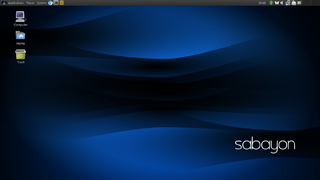
Sabayon Linux or Sabayon, is a Gentoo-based Italian Linux distribution created by Fabio Erculiani and the Sabayon development team. Sabayon follows the "out of the box" philosophy, aiming to give the user a wide number of applications ready to use and a self-configured operating system.

Korora was a remix of the Fedora Linux distribution. Originally Kororaa was a binary installation method for Gentoo Linux which aimed for easy installation of a Gentoo system by using install scripts instead of manual configuration. The name derives from the Māori word, “kororā” – the little penguin.

TestDisk is a free and open-source data recovery utility. It is primarily designed to help recover lost data storage partitions and/or make non-booting disks bootable again when these symptoms are caused by faulty software, certain types of viruses or human error . TestDisk can be used to collect detailed information about a corrupted drive, which can then be sent to a technician for further analysis.
aufs implements a union mount for Linux file systems. The name originally stood for AnotherUnionFS until version 2.
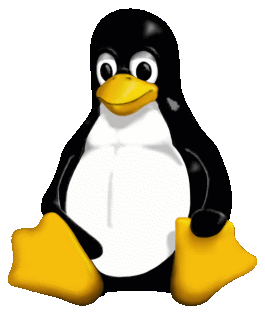
Tux is a penguin character and the official brand character of the Linux kernel. Originally created as an entry to a Linux logo competition, Tux is the most commonly used icon for Linux, although different Linux distributions depict Tux in various styles. The character is used in many other Linux programs and as a general symbol of Linux.

Calculate Linux is a Linux distribution optimized for rapid deployment in a corporate environment. It is based on the Gentoo project and includes numerous pre-configured functions.

AwesomeWM is a dynamic window manager for the X Window System developed in the C and Lua programming languages. Lua is also used for configuring and extending the window manager. Its development began as a fork of dwm. It aims to be extremely small and fast, yet extensively customizable. It makes it possible for the user to manage windows with the use of keyboard.
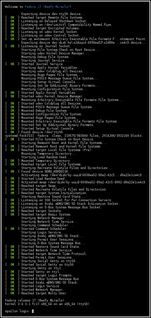
The systemd software suite provides fundamental building blocks for a Linux operating system. It includes the systemd "System and Service Manager", an init system used to bootstrap user space and manage user processes. The name systemd adheres to the Unix convention of naming daemons by appending the letter d. It also plays on the term "System D", which refers to a person's ability to adapt quickly and improvise to solve problems.

MATE is a desktop environment composed of free and open-source software that runs on Linux and BSD operating systems.
This page is based on this
Wikipedia article Text is available under the
CC BY-SA 4.0 license; additional terms may apply.
Images, videos and audio are available under their respective licenses.













